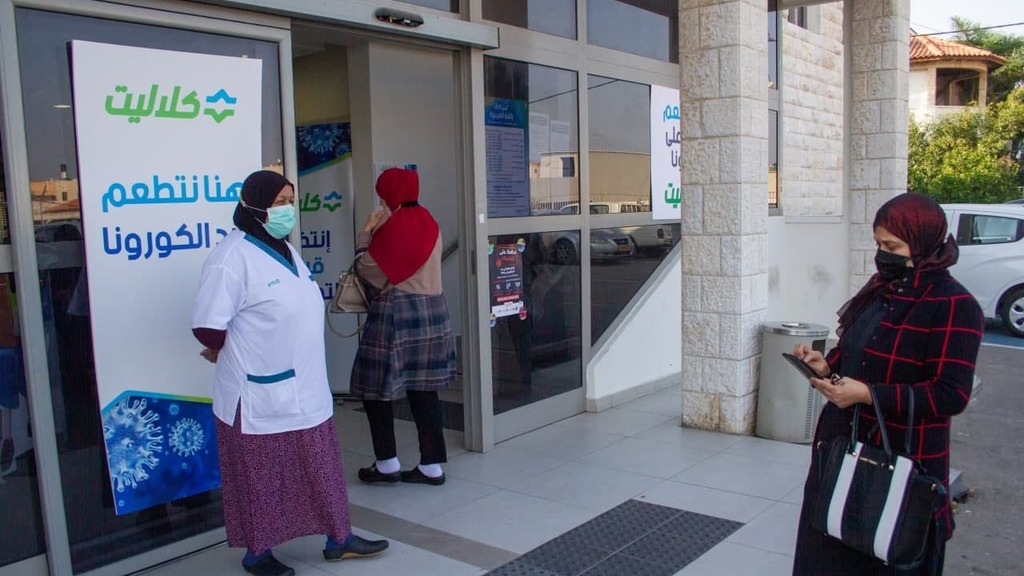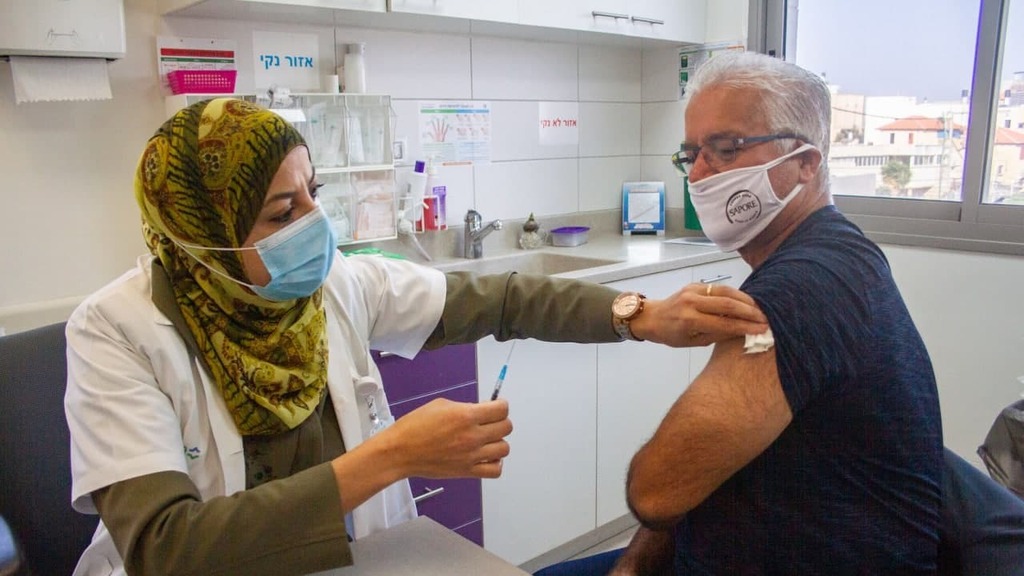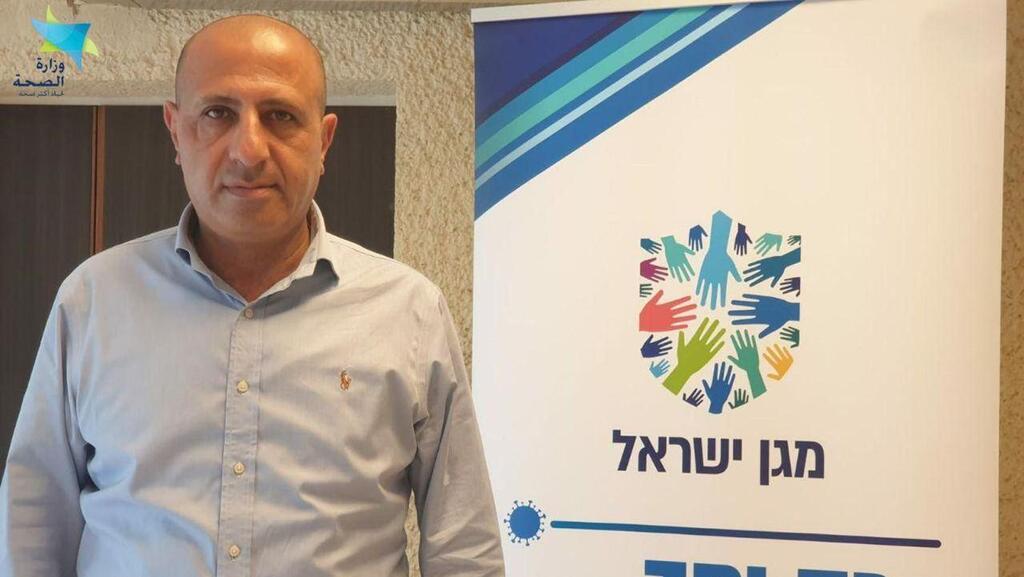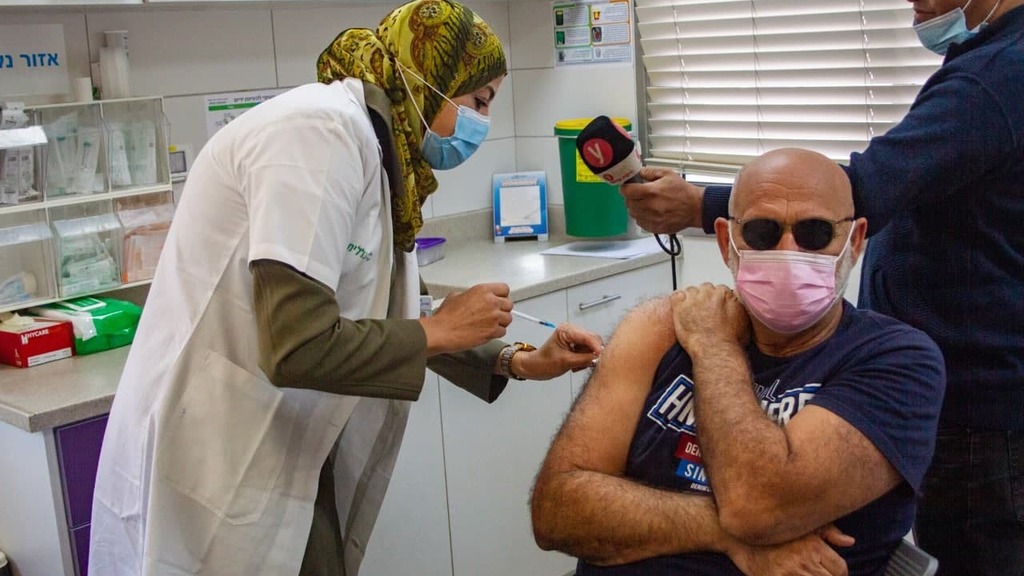A Health Ministry official said on Monday public response to the COVID-19 vaccine rollout was far slower in the Arab Sector.
Ayman Sayyaf, who coordinates the ministry's coronavirus response in the Arab sector said the Arab elderly population was slow to seek vaccines but some improvement is already being noted in the 40 vaccination sites in Arab cities and villages.
"We are seeing more and more people from Arab communities arriving to receive their shots. A complete reversal from the trend we saw in the first days of the inoculation campaign."
"It has been publicized that vaccines are running out and that there will be a period of a couple of weeks before more doses arrive in the country," Sayyaf said. "That leaves us with one week to change the trajectory and get as many people as possible to receive their vaccines."
"There are many doctors and nurses in the Arab public. This is a wonderful group of people that are highly respected in the community and have taken upon themselves the mission of convincing, especially our elderly members, of the importance of receiving the vaccines," he said.
"We've also reached out to local political leaders and religious authorities who have spoken about the importance of vaccination in our churches and mosques. We are trying every way possible to reach as many people as possible because that is our best chance of freeing ourselves from the virus." Sayyaf said.
He warned of a barrage of fake news disseminated in Arabic on vaccines. "Much more than in Hebrew," he said.
"This affects the younger generation and they sway their parents and grandparents against receiving the shots. We have to counter the fake news with information and education. We've been urging medical teams to post pictures of themselves getting the vaccine and adding their explanation about how important it is for our society." Sayyaf said.
He hoped at least 100,000 of the 140,000 Arabs over the age of 60 will get vaccinated. "I will consider that number a success," he said,
"There have been many Israeli Jews from towns neighboring some of the Arab cities that have come to receive shots. They came because they knew they would not need to stand in long lines before receiving their jabs."
"Though I am always happy to see Jewish Israelis visiting Arab cities, I would prefer to see more of our own population receiving their vaccines," Sayyaf said.
Morbidity in Arab cities remained high. "Arabs constitute 18% of daily coronavirus cases but a month ago, we were at 50% of all daily cases confirmed. Still, the numbers are too high and more than 900 out of 5,000 coronavirus cases are too much." He said, adding that the positivity rate is also very high due to inspection tests on those already confirmed as active patients.
Jack Cabissa from Kibbutz Magal in the north came on Monday to receive his vaccine in the neighboring Arab town Baqa al-Gharbiyye.
"The service is great here and it is right next door," he said.
Ines Atamna, the nurse who administered the shot said work was abundant.
"We are working under pressure. We were supposed to have three stations to deal with the demand but have opened four more. Some days, we man six or seven stations and call in reinforcements from nearby hospitals. We are trying to provide the best service possible."
Atamna said she hoped only at-risk groups and the over 60s will come for their vaccines and calls on younger members of society to wait patiently for their turn.
"It is important that people who have appointments are those who receive their vaccines. We will include people aged 50 and over and those with chronic illnesses next," she said.
Baqa al-Gharbiyye Mayor Raed Daka said his population is responding nicely to the vaccination drive.
"At first we had a slow response all over the Arab sector. Until Sunday, only 20% of our people received their vaccines but after a municipal campaign to get people out to the vaccination sites, that included driving through different neighborhoods with loudspeakers telling people to come on out, we've now administered the first dose of the vaccine to over 40%," he said.
"We've been calling people. The vaccines are our only hope out of this mess," he said. "We want normal life back."
He also said he was happy to see Jewish neighbors come into his town for their vaccines. "We all share this responsibility and if our vaccination sites can provide quicker and better service than in neighboring Jewish cities, I welcome everyone."





